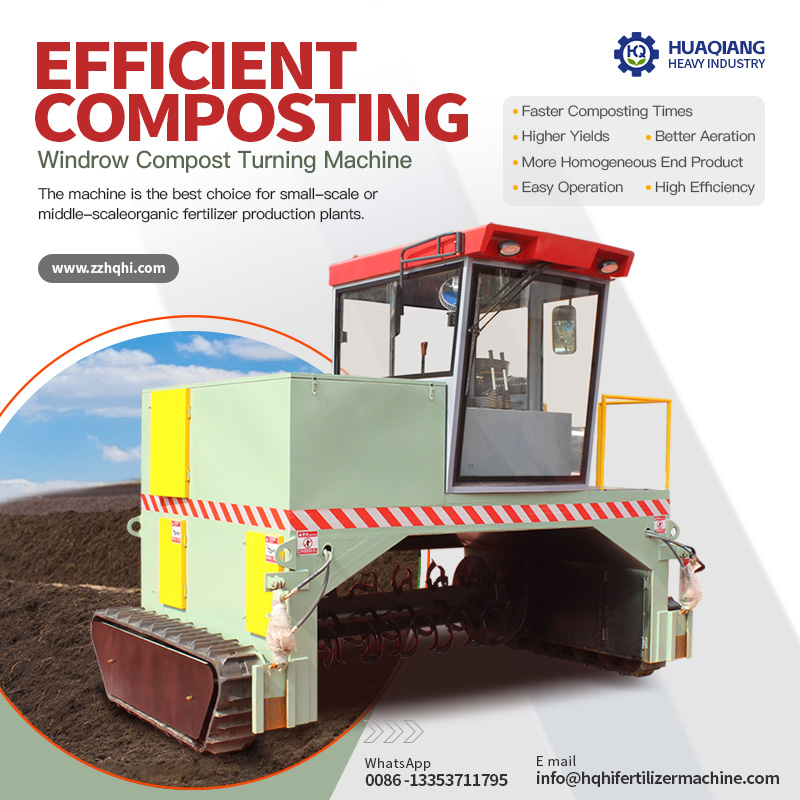In organic fertilizer production, aerobic fermentation is the core process, and compost turning machines are key equipment for efficient fermentation. Among them, the windrow compost turning machine, with its unique design and strong performance, has become the preferred choice for many production lines.
1.Suitable for Large-Scale Continuous Production
windrow compost turners are typically equipped with self-propelled crawler chassis, featuring wide spans and high processing capacity. They can efficiently handle fermentation trenches as wide as 3–5 meters. Therefore, they are particularly suitable for large-scale organic fertilizer plants with an annual output of over 10,000 tons.
2.Ideal for Handling Highly Viscous and High-Moisture Materials
With their large ground contact area and low ground pressure, windrow turners are less prone to sinking. This makes them especially suitable for processing high-moisture, high-viscosity raw materials such as livestock manure, sludge, and kitchen waste. Their sturdy crawler chassis ensure stable operation even under challenging material conditions.

3.Well-Suited for Trench Fermentation Processes
The most common application for windrow compost turners is trench fermentation. They move along pre-laid tracks or fermentation trench walls, evenly turning and tossing the materials in the trench. This ensures adequate oxygen penetration and promotes efficient microbial activity.
4.Suitable for Production Lines Aiming for Low Operating Costs
Although the initial investment in a windrow turner may be relatively high, its durability and low failure rate reduce maintenance costs in the long run.
5.Ideal for Modern Facilities with Neat Spatial Planning
Windrow compost turners usually require well-planned factory layouts. They are best suited for production lines with orderly layouts, sufficiently long fermentation trenches, and a goal of achieving intensive and standardized management of the fermentation process.
In summary, windrow compost turning machines are particularly suitable for large-scale, intensive organic fertilizer production lines dealing with complex raw materials.